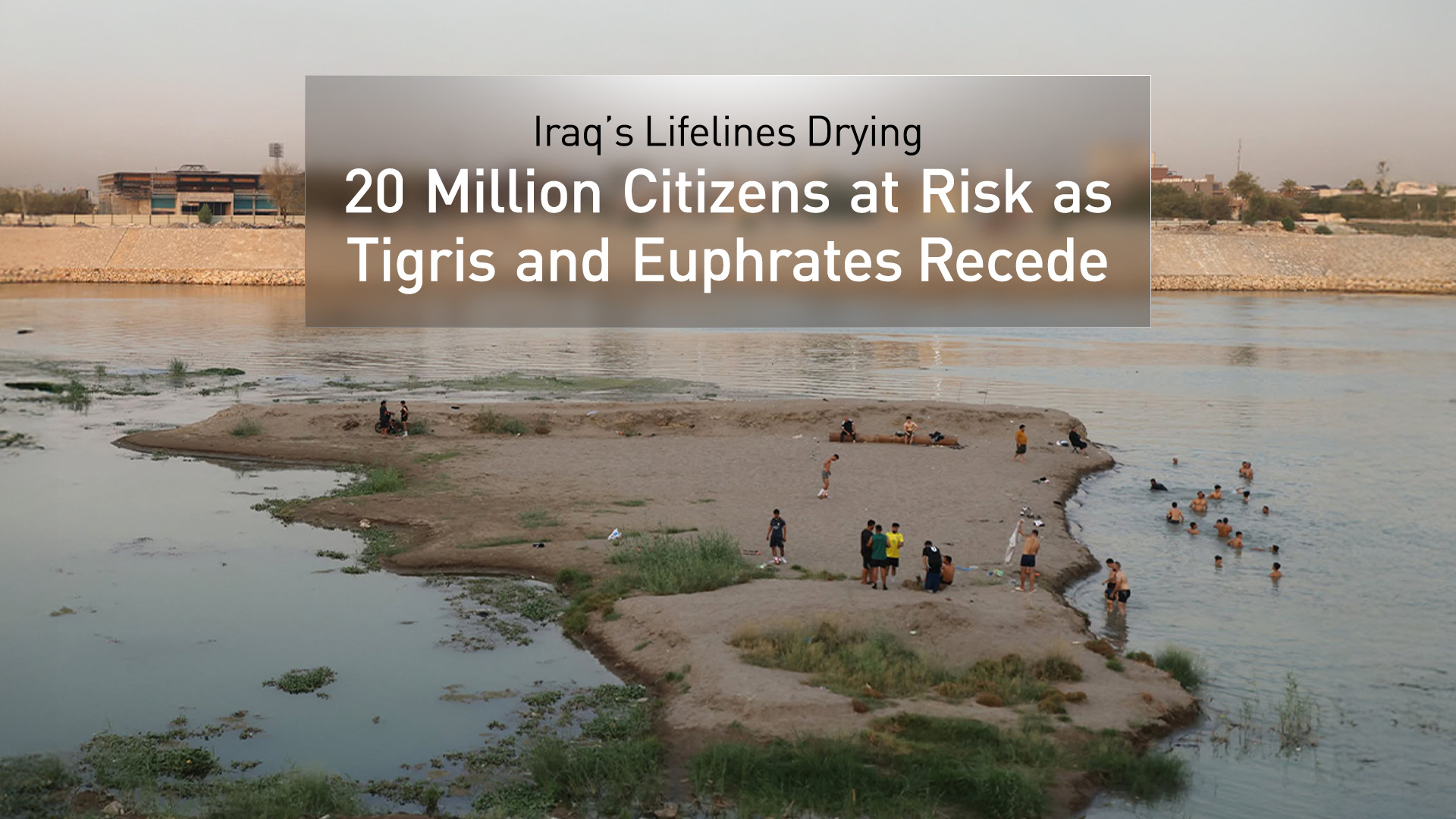Iraq's Water Crisis: Upstream Damming Puts 20 Million Lives at Risk, Officials Warn
Iraq's water crisis deepens as upstream damming by neighbors threatens 20 million lives. Officials urge diplomatic action and internal reforms, but a regional initiative has failed to gain traction, forcing villagers to consider migration.

ERBIL (Kurdistan24) – The very lifelines of Iraq, the Tigris and Euphrates rivers, are receding at an alarming rate, prompting a dire warning from the Iraqi Parliament’s Agriculture Committee that the lives and livelihoods of an estimated 20 million citizens are now in jeopardy.
Attributed primarily to the extensive damming of the rivers by neighboring countries, particularly Türkiye, the escalating water crisis is forcing villagers along the riverbanks to consider a mass exodus from their agricultural lands towards overburdened provincial centers, threatening to reshape the nation's demographic and economic landscape.
The stark reality of the crisis is visible to all who live by the rivers. The once-mighty Tigris is now a shadow of its former self, a situation that has developed over several years but has reached a critical point.
"For five to six years, the water has been decreasing, and year after year the water level of the Tigris drops further," said Karrar Sami, a citizen observing the dramatic changes. "Especially this year, several islands have appeared in the middle of the river, which we have never seen before. In some places, you can even cross the river on foot."
This dramatic reduction in water flow has had a devastating impact on those who depend directly on the river for their survival. Fishermen, who have navigated these waters for generations, now find their profession imperiled.
Hassan Jabr, a local fisherman, conveyed the grim situation to Kurdistan24, pointing to the exposed riverbed as clear evidence of the problem. "The country of Türkiye has dammed the river's water, and this is the result. It is clear how much the water has dropped," he explained. "We used to go upstream to fish, but now the water has dropped by about three to four meters. Look at the middle of the river, its bed has been exposed."
Official data from the Iraqi Ministry of Water Resources substantiates these firsthand accounts with startling figures.
The nation's water levels have plummeted from a historical average of 70 billion cubic meters to less than 40 billion cubic meters. The crisis is compounded by internal challenges, as the ministry also reported that while 21 billion cubic meters of water were stored during the past winter season, nothing of that reserve remains due to what is being described as mismanagement.
This combination of external pressures and internal inefficiencies has created a perfect storm for Iraq's water security.
In response to the growing emergency, the Agriculture Committee in the Iraqi Parliament has issued a formal statement underscoring the severity of the damages.
The committee affirmed that the drop in river water has placed the lives and economic stability of 20 million Iraqis at risk and acknowledged that, in some affected areas, villagers are being forced to migrate as their lands become unfarmable and their primary water sources dry up.
Faleh al-Khazali, the Head of the Agriculture Committee, has outlined a series of urgent demands directed at the federal government.
"We call on the federal government to speak with Türkiye to release more water, no less than 800 cubic meters of water per second, in order to revive the Tigris and Euphrates rivers for drinking water and agricultural use," he stated.
Al-Khazali also stressed the need for domestic action to preserve what little water remains, calling for the immediate demolition of "all unauthorized lakes and fish farms so that more water returns to the rivers."
Despite these calls for action, diplomatic efforts have so far failed to yield results.
Two months ago, the Iraqi Prime Minister announced a regional initiative aimed at protecting water security and formally called on neighboring countries to ensure a continuous release of water into the shared rivers.
However, according to reports, none of Iraq's neighbors have responded to the Prime Minister's initiative, leaving the nation in a precarious position as it faces a deepening environmental and humanitarian crisis with no immediate solution in sight.
Kurdistan24's correspondent Shvan Jabbari contributed to this report.
